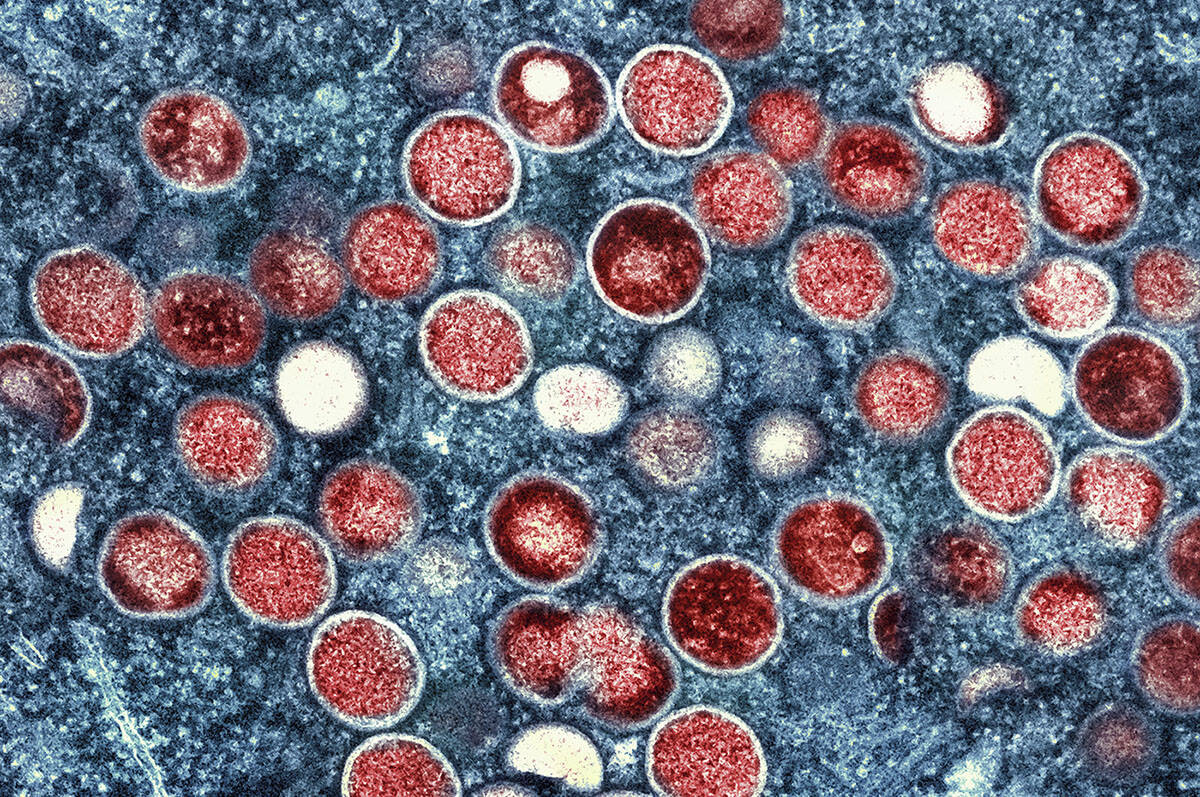Monkeypox in wastewater signals potential rise in Southern Nevada cases

Wastewater surveillance earlier this week detected the monkeypox virus in samples at most of Clark County’s wastewater treatment plants, signaling a potential increase in cases, a researcher said Thursday.
The finding is “rather strange” since the virus had not been detected in county wastewater for two to three weeks, said Edwin Oh, a researcher and assistant professor with the Kirk Kerkorian School of Medicine at UNLV.
The virus was last detected only in sewer lines that service a part of the Strip, he said. This week, the virus was detected at low levels at five separate wastewater treatment facilities.
“We will want to see if this is a trend that continues next week, and if so, then we would expect case counts to increase significantly,” Oh said in an email.
Since June, 211 confirmed or probable cases of monkeypox have been identified through testing in Clark County, as outbreaks have been reported of the once-rare virus across the U.S. and around the globe. Numbers of new cases have been declining in Clark County and are leveling off in other parts of the country.
However, the wastewater finding could mean that there are mild cases of monkeypox, and cases that are still in the three-week incubation period, that have gone undetected, said Cassius Lockett, director of disease surveillance and control for the Southern Nevada Health District.
“We definitely have to remain vigilant,” Lockett said. “What it signals to me is that we need to do more testing. It’s telling us that definitely monkeypox is out there.”
In late July, monkeypox was first detected in Clark County wastewater at low levels in samples from the Strip and at least one wastewater treatment plant. Wastewater surveillance serves as an early-warning system for disease trends.
People infected with monkeypox excrete monkeypox virus DNA through skin lesions, saliva, feces and urine, which can enter the wastewater via toilets, sinks and shower drains. Its presence, and that of other viruses, in wastewater poses no threat to the drinking water supply, which is treated to kill any viruses.
Vaccine eligibility expanded
Meanwhile, the Southern Nevada Health District has scheduled a monkeypox vaccination clinic for Saturday after expanding eligibility for inoculation to more groups at heightened risk for the virus.
The virus, which is typically transmitted through intimate skin-to-skin contact, has primarily been spreading within the social networks of men who have sex with men. However, anyone can contract monkeypox, which also can be transmitted through body fluids and contact with contaminated linens.
The district has expanded eligibility to include certain groups of people with HIV or who have had a sexually transmitted disease in the past 12 months. These groups include gay, bisexual and other men who have sex with men. They also include transgender, gender non-conforming and non-binary individuals.
The current data shows that men who have sex with men make up most of the reported cases.
Eligibility also has been expanded to sex workers of any gender identity or sexual orientation.
Monkeypox, which is characterized by a rash or lesions and flu-like symptoms, can spread from the time symptoms start until the rash has fully healed and a new layer of skin has formed, according to the district. The illness typically lasts two to four weeks.
Monkeypox is rarely fatal, but the lesions can be extremely painful and lead to scarring.
First U.S. death reported
Since May, there have been nearly 23,000 confirmed cases in the U.S., with the first death reported this week in Los Angeles.
Already eligible for vaccination through the health district are those who have had close physical contact in the past 14 days with someone known to have, or suspected of having, monkeypox, including sexual partners, household members and other close contacts.
Also already eligible are certain groups of people who have had multiple or anonymous sex partners in the past 14 days, especially at a venue, event or within a group where monkeypox was known or suspected of being present. These groups include gay, bisexual and other men who have sex with men. They also include transgender, gender non-conforming and non-binary individuals.
The vaccine, if administered within days of an exposure, can prevent infection or more serious illness, public health authorities say.
Saturday’s clinic will be from 8 a.m. to 1 p.m., at the district’s main public health center at 280 S. Decatur Blvd. The clinic is located inside the white structure on the south side of the building. First doses of the two-dose vaccine are available by appointment only and can be scheduled at https://vax4nv.nv.gov/s/vaccine-type. Second doses are available on a walk-in basis.
Individuals who have had monkeypox are not eligible for the vaccine. Clients will be assessed prior to receiving the vaccine to ensure they meet the eligibility requirements.
Contact Mary Hynes at mhynes@reviewjournal.com or 702-383-0336. Follow @MaryHynes1 on Twitter.